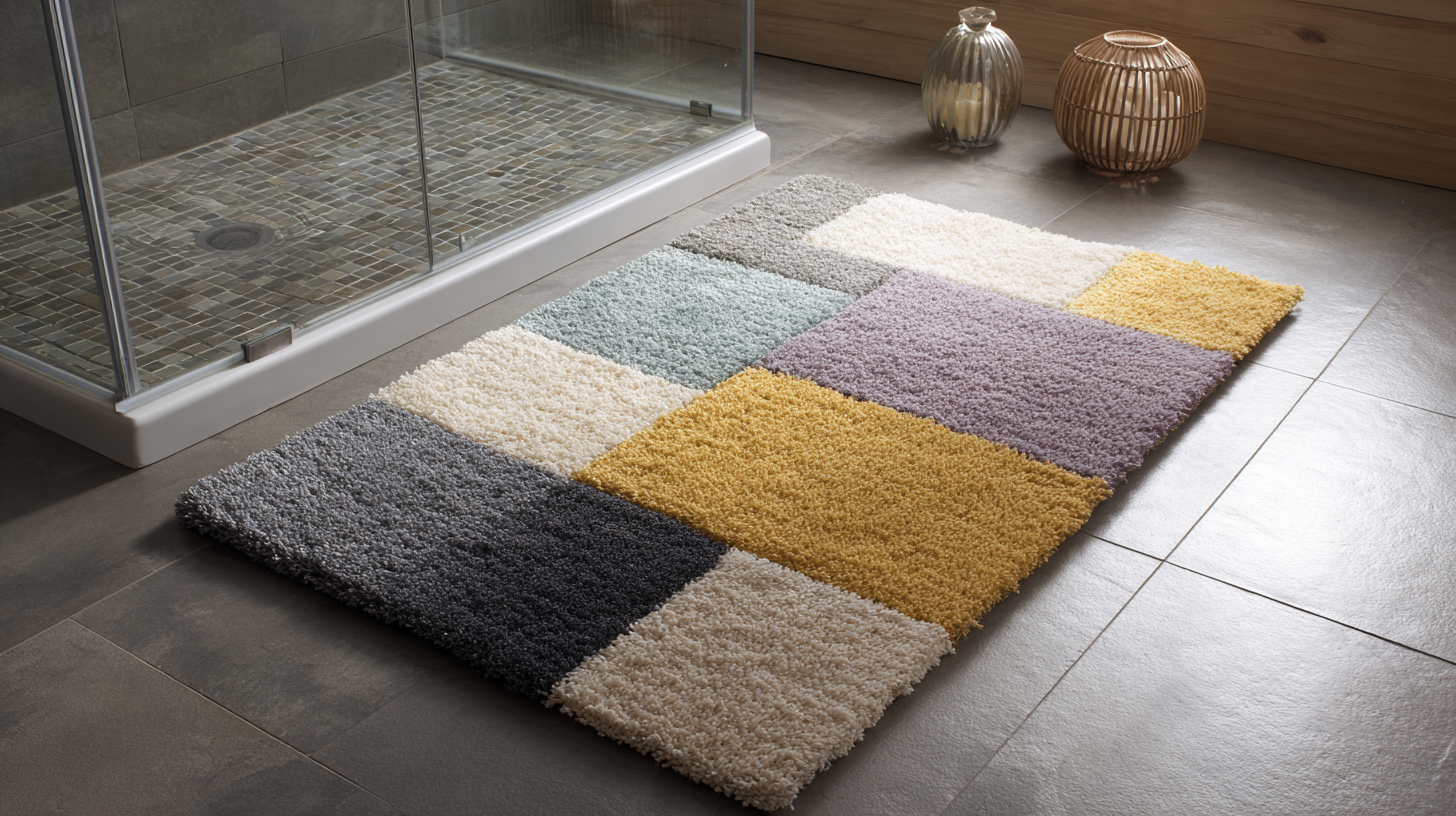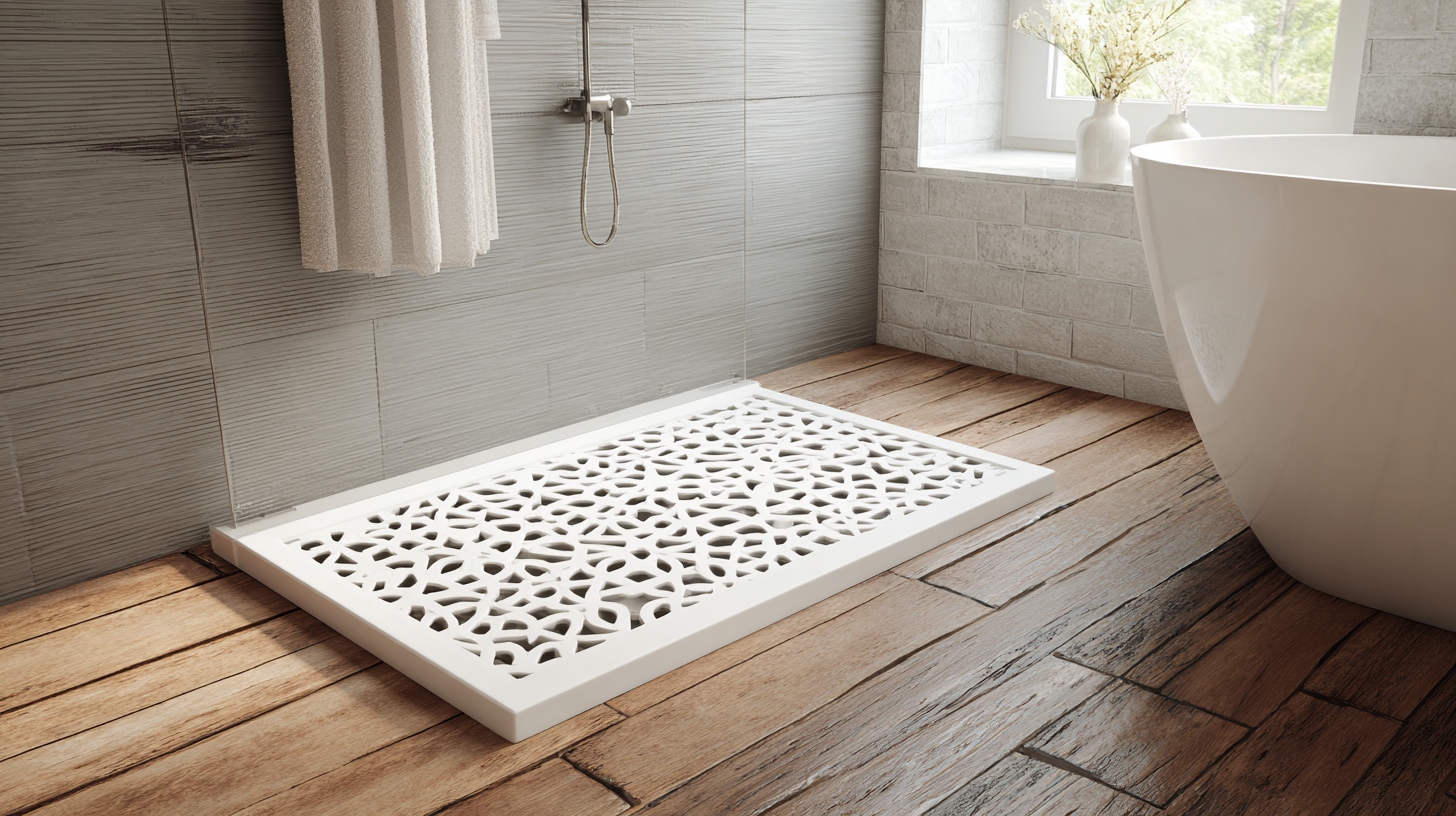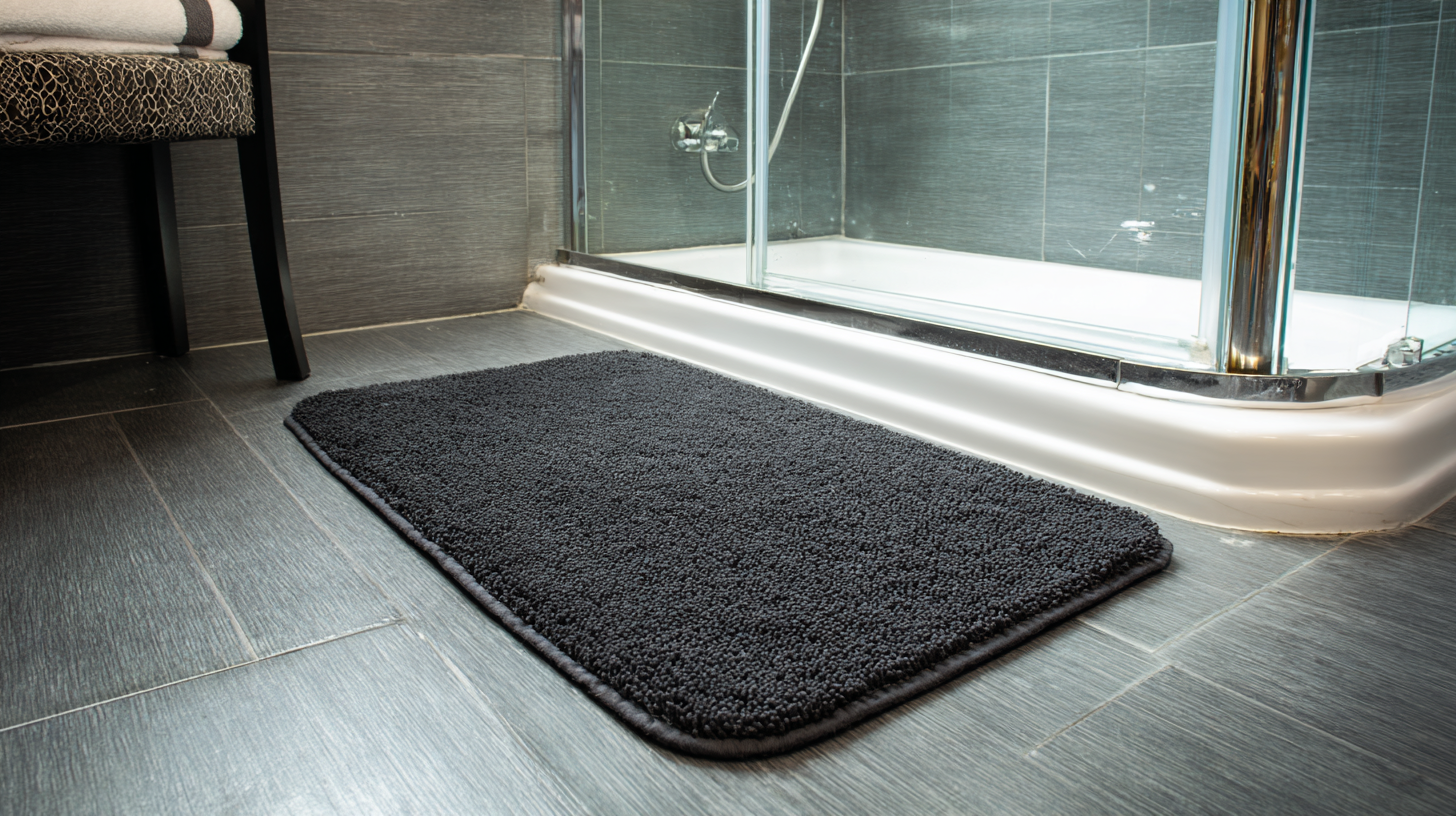When it comes to creating a safe and comfortable bathing environment, the importance of the right "Mat For Shower Floor" cannot be overstated. According to a recent report by the National Home Improvement Association, nearly 65% of homeowners prioritize slip resistance and comfort when selecting materials for bathroom safety. As the demand for high-quality bathing mats grows, navigating the complexities of import and export certifications becomes essential for suppliers and consumers alike. Compliance with industry standards not only ensures product safety but also enhances marketability in a competitive landscape. In this blog, we will explore effective strategies for sourcing reputable suppliers who can provide mats that meet regulatory requirements, ultimately guiding consumers in their quest for the best options in the market.

To ensure compliance and maintain the quality and safety of shower mats in the importing and exporting process, understanding import and export certifications is crucial. Recent developments, such as the enhanced standards for Customs Advanced Certification enterprises, underscore the significance of rigorous certification processes. According to data, over 540 certified enterprises in Shanghai accounted for more than one-third of the region's import and export volume, illustrating how certifications can facilitate smoother transactions and elevate product standards.
Tips: When navigating the certification landscape, make sure to familiarize yourself with specific national standards, such as the India BIS certification, which affects over 679 product categories. Compliance is not just about avoiding penalties; it also builds trust with customers and partners by ensuring that your products meet international safety norms.
Furthermore, the emphasis on quality assurance is paramount; as seen with the recent measures taken by countries like India and Kazakhstan to regulate imports, especially concerning safety. For shower mats, it's essential to not only adhere to import regulations but also to optimize your product design to meet or exceed these evolving standards, thereby enhancing your brand's reputation in competitive markets.
When sourcing shower floor mats, understanding the key certifications is essential for ensuring safety and quality. Certifications such as ASTM and ISO standards can be crucial indicators of a product's durability and performance. The bath rugs and mats market is projected to grow significantly, with expectations to reach a valuation of $6.9 billion by 2035, reflecting an increasing demand for high-quality, certified products. This growth emphasizes the importance of reliability and safety in shower mats, particularly given that improper materials can lead to safety hazards in wet environments.
Moreover, various certifications regarding slip resistance and moisture absorption are worth considering. Products certified with the CE mark guarantee compliance with European safety standards, making them reliable choices for both residential and commercial settings. As innovations continue to shape the industry, focusing on these key certifications will not only enhance the aesthetic appeal of homes but also provide a comfortable and safe experience for users. Emphasizing certified products helps consumers make informed decisions while contributing to the overall growth dynamic of the bath mat market.
When engaging in the international trade of shower mats, understanding regulatory compliance is crucial. Each country has specific requirements regarding materials, safety standards, and environmental regulations that must be met to successfully import or export goods. Manufacturers and retailers must ensure that their products comply with these regulations to avoid costly delays and penalties. For instance, certifications such as the CE mark in Europe or the ASTM standards in the U.S. serve as an assurance that the shower mats are safe and meet industry standards.

Additionally, compliance with import and export certifications often requires detailed documentation, including safety test reports, material safety data sheets, and proof of adherence to environmental regulations. Companies should invest time in researching the specific requirements of their target markets, which may involve collaboration with legal experts or trade consultants. Moreover, staying updated on evolving regulations is essential as trade policies can change frequently, impacting product eligibility and market access. In an increasingly globalized market, navigating these complexities can provide a competitive edge and build consumer trust in the products offered.
When considering the environmental impact of importing shower mats, it’s crucial to understand the footprint associated with transportation and production. Many shower mats are made from synthetic materials that require significant energy and resources to produce. The process of importing these products often involves long-distance shipping, which contributes to carbon emissions. This means that even before the mat reaches your home, it may already have a substantial environmental toll.
Additionally, the materials used in shower mats can also pose ecological risks. Some mats are made from non-biodegradable plastics, which can end up in landfills and oceans, harming wildlife and ecosystems. Consumers should consider sourcing mats made from sustainable materials or those produced locally to mitigate these effects. By choosing products manufactured closer to home or made from recycled materials, buyers can significantly reduce their environmental impact and promote a more sustainable approach to home decor.
Ensuring quality and safety in shower mat exports is paramount for manufacturers seeking to thrive in competitive markets. According to a report by the Consumer Product Safety Commission, over 230,000 bathroom-related injuries occur annually in the U.S. alone, emphasizing the necessity for rigorous safety standards. Companies should prioritize adhering to international certification requirements, such as ISO 9001, which focuses on continuous improvement and customer satisfaction in manufacturing processes. By implementing these standards, manufacturers not only elevate the quality of their products but also build consumer trust.
Additionally, it is crucial for manufacturers to stay informed about the specific regulations governing their target markets. For instance, the European Union mandates compliance with the REACH regulation, which restricts hazardous substances. A recent study by the Market Research Future identified that 55% of consumers actively seek eco-friendly and non-toxic materials when purchasing shower mats. By integrating these best practices, including thorough testing for slip resistance and material safety, manufacturers can significantly enhance the safety profile of their products, thus appealing to the ever-growing environmentally-conscious consumer base.

